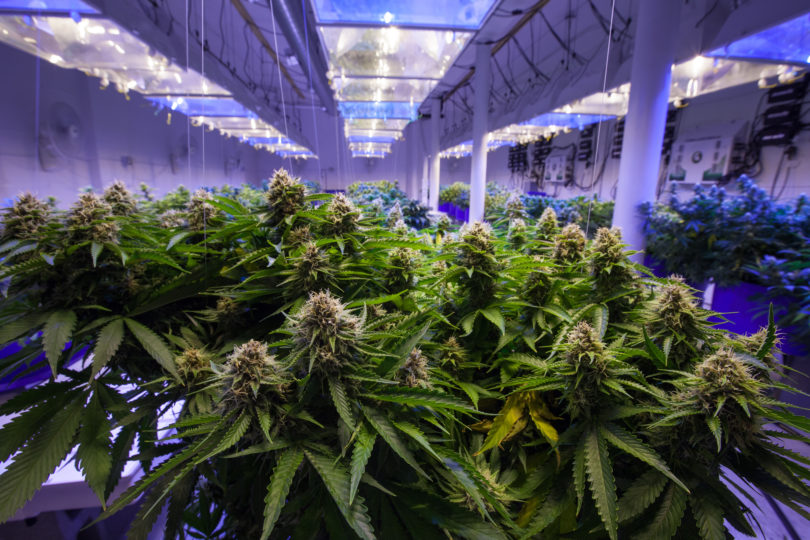In California, where Prop. 64 was expected to protect small-business owners, many are being pushed out by ‘Big Cannabis’.
The legal industry in the Golden state is growing exponentially. Last year it was valued at $2.51 billion, making it the largest cannabis market in not just the US, but the entire world. There are also an estimated 64,000 people are employed in the California cannabis industry. Prior to adult-use legalization, most of the dispensaries were mom and pop shops that were owned and operated by families, individuals, or a few select business partners.
Of course there were exceptions like MedMen, but overall, cannabis storefronts were small businesses. Many were unable to stay open due to crippling new regulations and fees, or they got bought out later in the game with the latter happening more and more frequently throughout the state.
California cannabis, eh?
Over the last few months, there’s been an influx of Canadian interest in the local market. In May, Canadian cannabis producer Sunniva purchased 80 percent of two California cannabis companies: Coachella Distillation and 420 Distribution.

Canadian companies are investing in California cannabis
Just last week, Nabis Holdings Inc. – a prominent Canadian investment firm – acquired 100 percent ownership of Desert’s Finest Dispensary in Desert Hot Springs. This was renowned as the top recreational cannabis dispensary in the area.
All of the above examples (which are far from the only ones) are in the Coachella Valley desert region of California, spanning from Desert Hot Springs on the western side to Indio at the far eastern end. This area is well known for cannabis cultivation and a large selection of recreational dispensaries. Desert Hot Springs was the first SoCal city to give the green light on large scale growing operations.
This process of corporate buyouts is referred to as ‘vertical integration’. Companies that hold multiple license – such as cultivation, manufacturing, distribution, retail etc. – claim that they can operate more systematically by overseeing the entire cycle from seed to sale. This type of tracking is already implemented in the California cannabis industry.
From grey to black
What’s unique about California when compared to other legal states is that they have both a successful grey market and a thriving black market. If you’re wondering what the difference is between the two, a grey market is basically a dispensary that’s operating illegally/without a license, and a black market is buying cannabis from a dealer as if it were still prohibited.

California’s black market is still thriving
Under Prop. 215 and SB 420, medical cannabis dispensaries operated as collectives meaning that they, along with patients and cultivators, had a mutually beneficial arrangement where discounts that the dispensary received on product were passed on to consumers for the biggest possible savings.
However, once phase 4 testing became a requirement in January 2018, the Bureau of Cannabis Control banned collectives. This, left patients with no options but to buy lab tested products from legal storefronts, which at an average of $200/ounce, was much more expensive than what they were paying previously.
And it’s all these changes, coupled with the fact that certain municipalities have banned dispensaries within city limits, that kept the grey and black markets booming. Dispensaries who didn’t follow the newly established legal pathway kept their prices the same and thus, held on to their customers. And regardless of how many legal shops there are, you can always find a dealer somewhere who’s willing to haggle.
New Frontier Data, a Washington, D.C., cannabis analytics firm, estimates that black market could account for nearly 80% of all cannabis sales. Eaze, an online cannabis delivery service headquartered in San Francisco, completed a study last year that revealed around “20% of Californians who bought cannabis in the previous three months bought it on the black market. Among those buyers, 84% said they would do it again, for the lower prices.”
Is this the end of the cannabis market as we know it?

Will smaller dispensaries be able to keep with with the changes?
To put it bluntly, yes. But don’t expect to see any huge changes overnight. It took decades for the black market to develop into what it is today and that can’t just be erased with the snap of a finger. As you likely already know, it’s all about money and with billion-dollar corporations eyeing the cannabis industry, it’s only a matter of time before the grey and black markets will give way into a tightly regulated legal market.
But will our favorite local shops get bullied out of the race? Experts say, “hopefully not.” According to Ryan Stoa, a professor at Concordia University School of Law in Portland, his study determined that “a local, sustainable and artisanal model of marijuana production can coexist with Big Marijuana—much as craft beer has thrived in recent years alongside the traditional macro breweries.”
Others believe that the era of small-time cannabis shops is over as we shift towards a highly regulated and more capitalist environment. At the end of the day, only time will tell what’s in store for the California cannabis industry, but if you ask me, I say it’s best we enjoy the lax atmosphere while it still exists because it certainly won’t be forever.







